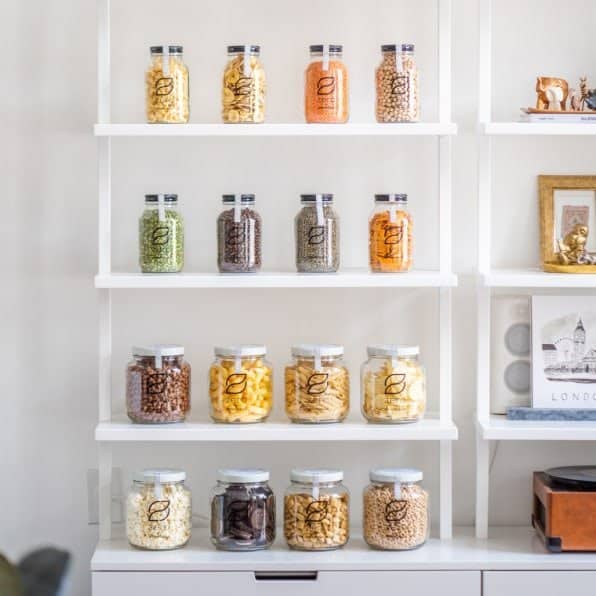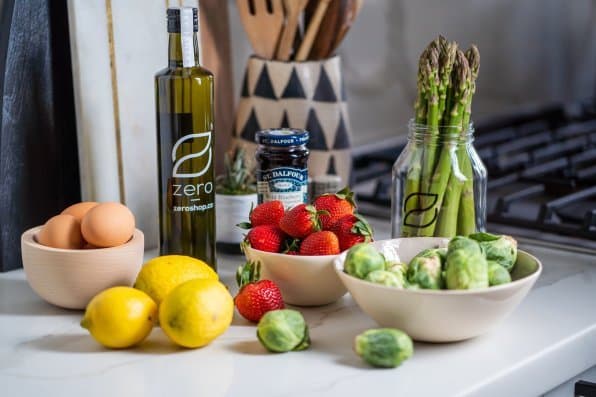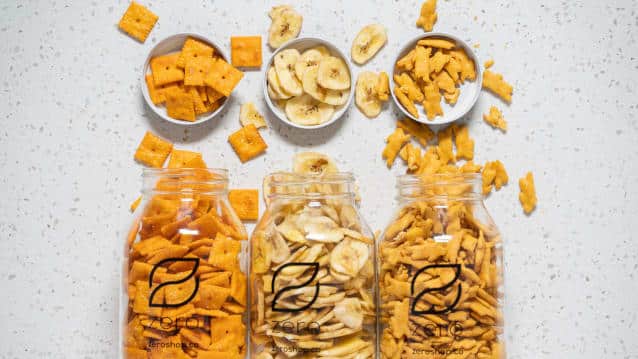Zero Grocery is a large-scale retail company that behaves like an old-fashioned dairy: all its groceries arrive in reusable containers that must be returned.
If someone orders groceries from the Zero Grocery startup, they find all the food in plastic free containers in the home shopping to be returned empty.

Common brands, like cereal or potato chips, are delivered in glass jars. Baby carrots? Always available in glass jars. Yogurt and milk? In glass jars. We understood each other. The company everything is delivered in plastic free packaging.
When the home shopping is finished and the containers are empty, they are left outside the door for a delivery person to collect when the next order arrives. A 2.0 version of the returnable vacuum of the milkman.
Zero Grocery, shopping at home in glass with returnable vacuum
“I wanted to make it easy for as many hard-working, everyday Americans as possible to adopt the lifestyle without plastic", He says Zuleyka Strasner, founder of Zero Grocery.

Practically all over 1100 items offered by the service are packaged in reusable plastic free containers. Only a handful of home grocery items, such as meat and fish, are in compostable wrappers.
Customers pay around 20 euros a month for membership, which includes unlimited free home grocery deliveries and avoids the need to charge deposits on glass containers.
How the Zero Grocery adventure began
Zero Grocery began by purchasing food from producers in bulk packaging intended for large orders by hotels or airlines, and repacking the food in reusable containers.
Now, Strasner says, they are also starting to work with some manufacturers who use plastic-free packaging already in the first packaging process. “The first thing we realized is that the existing supply chain doesn't work,” he says.

“We can't have something that starts its life in a glass jar and moves through the traditional supply chain. So we had to build the supply chain, infrastructure and supporting technology to allow all this to happen.”
A closer look
Zero Grocery follows each product more closely than would happen in a traditional supply chain, where there are typically several distributor steps in between before the food reaches a consumer.
The startup also tracks what happens to each package. “The reason the milkman or milkmaid declined from the 70s onwards is that it was a labor-intensive and difficult to manage industry,” he says.
“There was also no transparency about who had the bottles and where the product was moving, how to collect it and disinfect it. Today there are many points where technology really allows us to move forward.”
How does the plastic free home shopping service with returnable vacuum work?
When each package is returned, it is cleaned and sterilized before repackaging. “Products in a traditional grocery store are handled and touched by many more people, from production to distributors to grocery workers on the floor to customers,” Strasner says. Products are manufactured or packaged in a controlled environment.
A growing trend
Zero-waste or plastic-free grocery stores are becoming more common and other plastic-free home grocery delivery services are likely to follow. In Brooklyn, the startup Wally Shop also offers zero waste deliveries. loop, a platform that works with big brands, is helping manufacturers test new reusable packaging. Sure, some products are more difficult to pack without plastic than others, but it is essentially possible to offer any product in plastic free packaging.
“There's really nothing we can't provide,” he says. “Plastic is a new phenomenon. Since before the 60s it was common for almost all items not to be made of plastic.”


